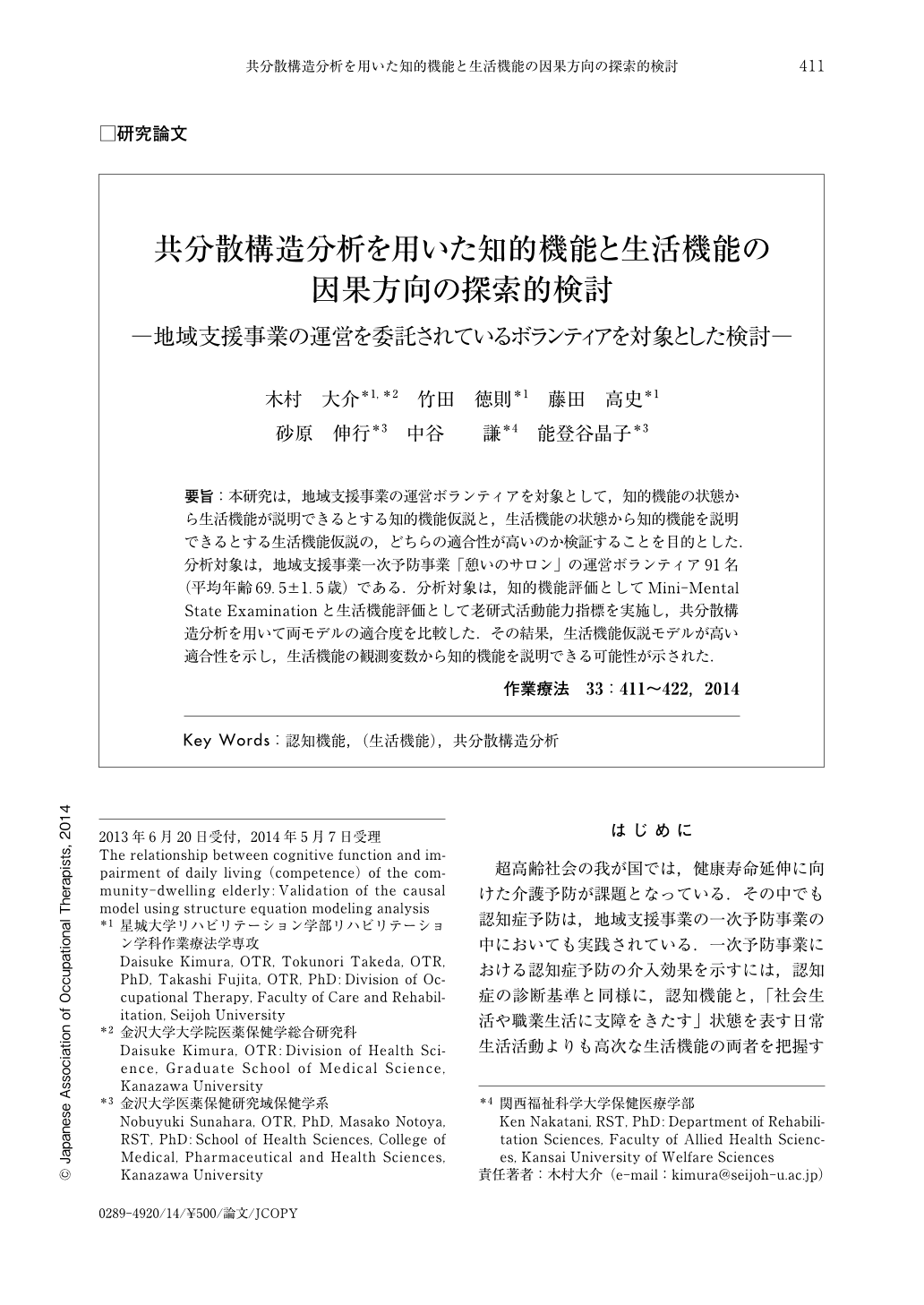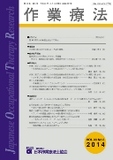Japanese
English
- 販売していません
- Abstract 文献概要
- 1ページ目 Look Inside
- 参考文献 Reference
要旨:本研究は,地域支援事業の運営ボランティアを対象として,知的機能の状態から生活機能が説明できるとする知的機能仮説と,生活機能の状態から知的機能を説明できるとする生活機能仮説の,どちらの適合性が高いのか検証することを目的とした.分析対象は,地域支援事業一次予防事業「憩いのサロン」の運営ボランティア91名(平均年齢69.5±1.5歳)である.分析対象は,知的機能評価としてMini-Mental State Examinationと生活機能評価として老研式活動能力指標を実施し,共分散構造分析を用いて両モデルの適合度を比較した.その結果,生活機能仮説モデルが高い適合性を示し,生活機能の観測変数から知的機能を説明できる可能性が示された.
This study inspected the causes of cognitive functional decline and the impairment of daily living (competence) of community-dwelling elderly. Likewise, basic data was presented that may contribute to the prevention of cognitive decline in the elderly. 91 volunteers (age 69.5±1.5) consented to the administration of cognitive decline prevention measures. The Mini-Mental State Examination was used to evaluate cognitive function, while the Tokyo Metropolitan Institute of Gerontology (TMIG) Index of Competence was used to evaluate impairment of daily living (competence). Alternatively, the Structure Equation Modeling Analysis was used to inspect of both causal models. Results showed the variables of the impairment of daily living evaluation influenced the intellectual function of the elderly.

Copyright © 2014, Japanese Association of Occupational Therapists. All rights reserved.


